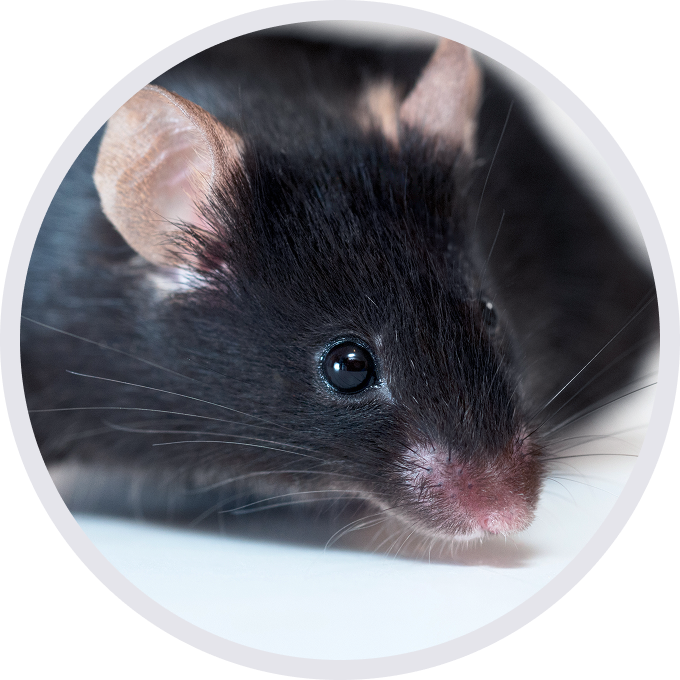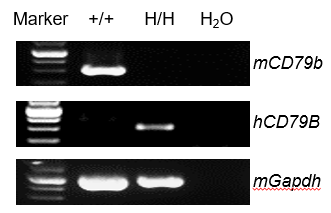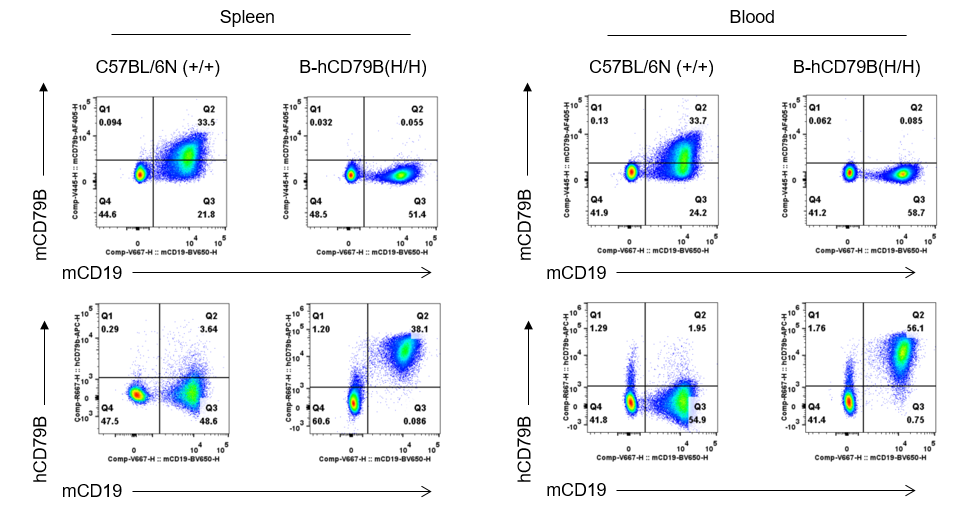
C57BL/6N-Cd79btm1(CD79B)Bcgen/Bcgen • 111096
Background:
CD79B encodes an Ig-β protein that forms part of the antigenic component in B cells. The CD79A and CD79B proteins together form a heterodimeric complex, and their interaction with immunoglobulin heavy chains is crucial for the expression of B-cell receptor (BCR) on the cell surface and the subsequent initiation of signaling pathways triggered by BCR activation.
Targeting strategy:
The exons 1-4 of mouse Cd79b gene that encode the extracellular domain were replaced by human CD79B exons 1-4 in B-hCD79B mice.
Validation:
Mouse CD79B was detectable in wild-type C57BL/6N mice.
Human CD79B was exclusively detectable in homozygous B-hCD79B mice, but not in wild-type C57BL/6N mice.
Application:
This product is used to assess the pharmacodynamics and toxicity evaluation of antibody or ADC drugs in the treatment of tumor-related diseases.
Gene targeting strategy for B-hCD79B mice. The exons 1~4 of mouse Cd79b gene that encode the extracellular domain were replaced by human CD79B exons 1~4 in B-hCD79B mice.

Strain specific analysis of CD79B mRNA expression in wild-type C57BL/6N mice and B-hCD79B mice by RT-PCR. Spleen RNA were isolated from wild-type C57BL/6N mice (+/+) and homozygous B-hCD79B mice (H/H), and then cDNA libraries were synthesized by reverse transcription, followed by PCR with mouse or human CD79B primers. Mouse Cd79b mRNA was only detectable in wild-type mice. Human CD79B mRNA was exclusively detectable in homozygous B-hCD79B mice, but not in wild-type mice.

Strain specific CD79B expression analysis in wild-type C57BL/6N mice and homozygous humanized B-hCD79B mice by flow cytometry. Splenocytes and blood were collected from wild-type C57BL/6N mice (+/+) and homozygous B-hCD79B (H/H), and analyzed by flow cytometry with anti-mouse CD79B antibody (R&D, FAB6814V) and anti-human CD79B antibody (Biolegend, 341406) by flow cytometry. Mouse CD79B was only detectable in wild-type C57BL/6N mice. Human CD79B was exclusively detectable in homozygous B-hCD79B mice, but not in wild-type C57BL/6N mice.